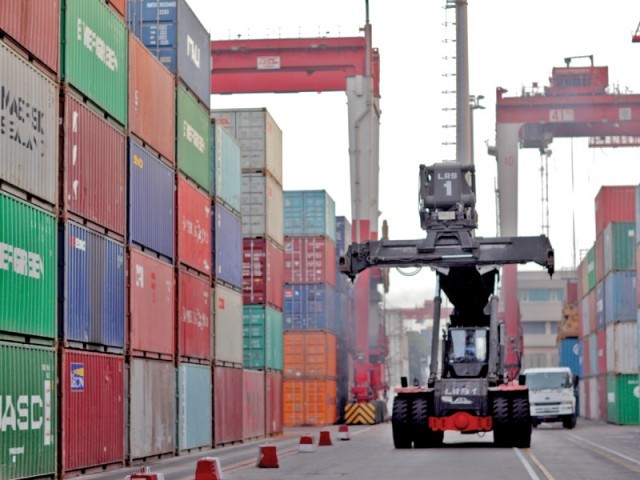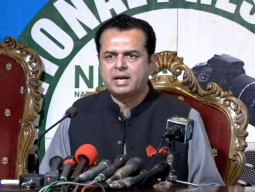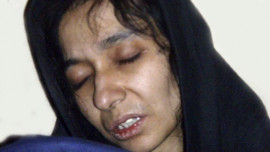
In the third mini-budget in as many months, the government on Monday increased tax rates on a wide range of products, including imports, professional services, luxury goods, and furnace oil.
The decisions were made at a meeting of the Economic Coordination Committee of the Cabinet, and were meant to honour Islamabad’s agreement to the International Monetary Fund (IMF) to meet the revised annual tax collection target of Rs2,691 billion. The additional taxes will pave the way for the IMF releasing the sixth loan tranche of $518 million.
Controversially, the taxes are being levied through a statutory regulatory order (SRO) rather than through an act of parliament. National Assembly Opposition Leader Khursheed Shah of the PPP has threatened to sue the government for its use of the much-reviled practice of the SRO, which many believe is unconstitutional since it bypasses the authority of parliament to determine tax rates.
This is the third time in three months that the government has had to impose additional taxes beyond those imposed in the Budget Act for fiscal 2015, which ends on June 30. The government had initial revenue target of Rs2,810 billion, described by most tax experts as too ambitious, but was vigorously defended by Finance Minister Ishaq Dar. Since then, the number has been reduced by Rs119 billion and the government is struggling to even stay on track to collect that smaller number.

The taxes imposed are likely to be highly unpopular since they affect nearly everyone in the country. Taxes on petrol and related products had already been increased to 27% before Monday’s meeting, up from 22% last month and 17% just four months ago. Duties on steel products have been increased to 15%. Both of these measures are expected to collectively raise Rs35 billion for the government.
The government has also increased taxes on imports of furnace oil, scrap metal and luxury goods by 5%. The tax on furnace oil is likely to increase the already high cost of power generation and the tax on scrap metal is likely to hit the country’s nascent heavy industrial sector.
Incentivising tax filing
The government has decided to expand its policy of charging higher tax rates for those who do not file their tax returns, a collection of measures that is likely to net the government an additional Rs15 billion in revenues, Federal Board of Revenue Chairman Tariq Bajwa told The Express Tribune.
Withholding tax rates for non-filing importers of fertilisers will go up to 1.5% from 1.0%, on pulses from 4.5% to 6.75%, on ships from 5.5% to 8.25%, and on all other imports from 6% to 9%. For non-filing professionals (doctors, lawyers, consultants, etc) who do business with taxpaying or government entities, withholding tax rates have been increased to 10.5% from the earlier rate of 7%. For non-filing sportsmen, the rates have gone up to 15% from the earlier 10% rate.
On transport services withholding tax rates have been increased to 3% and on all other services offered by companies the rates have been increased to 12% and on services offered by individuals the new rates are 15%. The FBR expects it will generate a minimum of Rs7.5 billion through this measure.
Withholding tax rates will remain unchanged for taxpayers who file their returns regularly and whose names appear on the Active Taxpayers List, said the government.
The policy of higher rates for non-filers was expanded in the 2015 budget when their tax rates were increased on transactions such as sale or purchase of property, vehicles, and cash withdrawals from banks.
The government also imposed a 5% additional duty on the import of 283 items including fruits, dairy products, marbles, refrigerators, other electric appliances, wooden furniture, imported vegetables, perfumes, cosmetics, toothpaste, shaving products, cooking ranges, ceiling fan, pedestal fan, table fan, exhaust fan, freezers, water dispensers, fully automatic machines, food grinders, fruit mixers, fruit or vegetable juice extractors, hair dryers, microwave ovens, coffee or tea makers, toasters, wooden cabinets, beds, electric table and desk, etc.
Textile policy
The ECC also approved five-year textile policy which targets doubling textile exports to $26 billion in five years, said Textile Minister Abbas Afridi. He said Rs65 billion will be required to implement incentives given under the five-year plan. Afridi claimed the policy will create three million new jobs in the value-added textile sector.
Under the plan, exporters have been offered duty drawback on local taxes and levies, reduction in export refinance interest rates from 9.4% to 7.5%, long term financing facility for technology upgrades at 9% interest, duty free import of machinery and vocational training.
The policy promises 4% duty drawback on garments, 2% on made-ups, 1% on processed fabric, said the minister.
Published in The Express Tribune, February 10th, 2015.







1732355030-0/BeFunk_§_]__-(41)1732355030-0.jpg)


1732356840-0/Copy-of-Untitled-(1)1732356840-0-270x192.webp)






COMMENTS (5)
Comments are moderated and generally will be posted if they are on-topic and not abusive.
For more information, please see our Comments FAQ